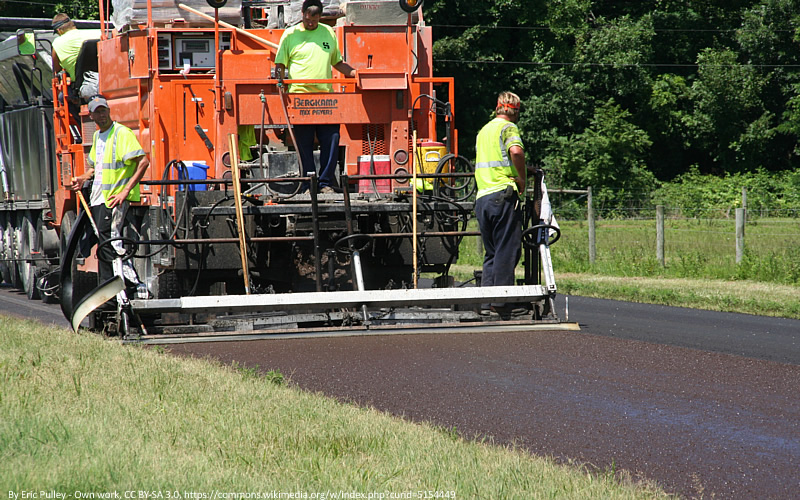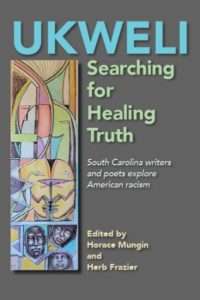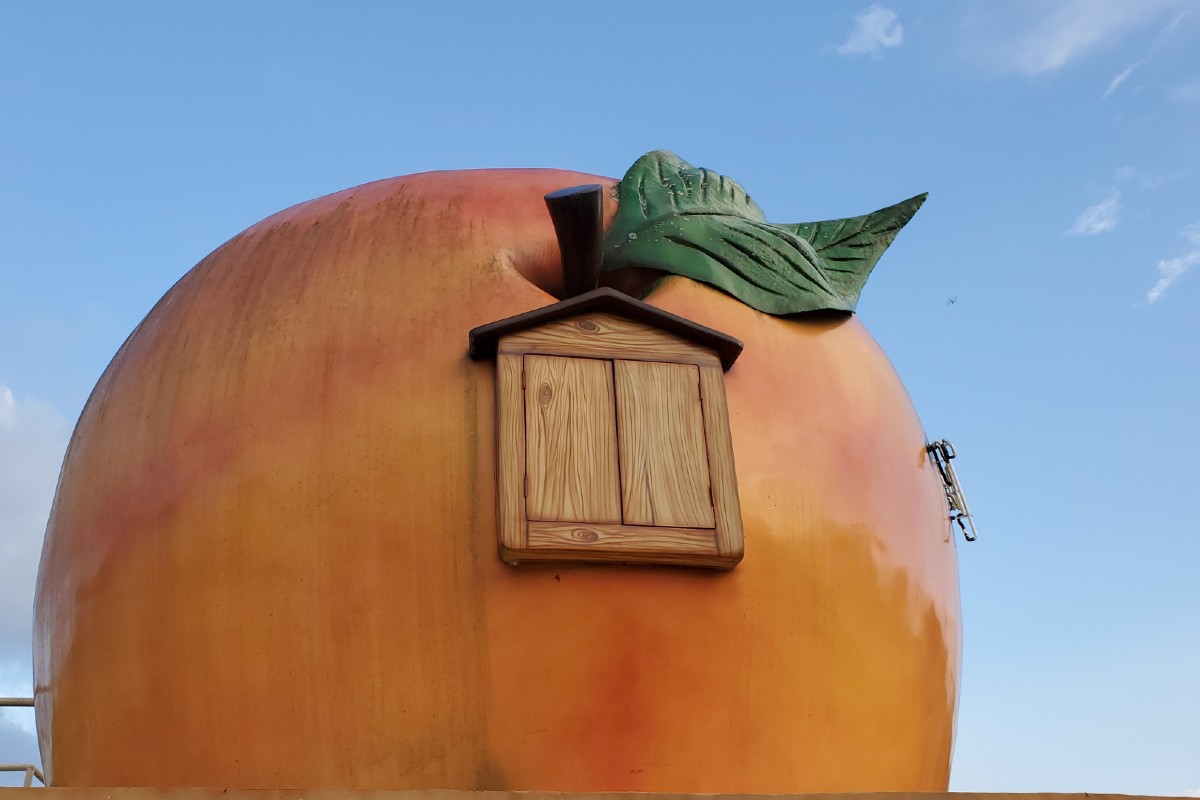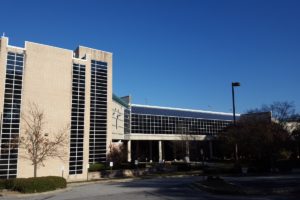STATEHOUSE REPORT | ISSUE 21.07 | FEB. 18, 2022
BIG STORY: Should S.C. really spend billions on widening interstates?
NEWS BRIEFS: State’s opioid recovery programs are lacking, study shows
LOWCOUNTRY, Ariail: Diversity
COMMENTARY, Brack: Cutting income taxes when education suffers is bad policy
SPOTLIGHT: SC Clips
MY TURN, Frazier: Awed by 47 writers in new book on racial truths
FEEDBACK: Speed round was great
MYSTERY PHOTO: Peachy
BIG STORY: Should S.C. spend billions widening interstates?

By Chris Dixon, special to Statehouse Report | South Carolina has the nation’s highest rate of rural road traffic fatalities, and some of its worst maintained rural roads and bridges.
Yet on Monday, S.C. Gov. Henry McMaster announced his intention to spend a significant portion of $4.6 billion in anticipated federal highway infrastructure dollars intended for rural roads to be used for widening interstates instead.
“The Federal Highway Administration office says, so far, they are not able to spend money on widening roads,” McMaster said in a speech to the North Charleston Rotary Club. “They want to put it on rural roads. Well, we need to put it on widening the interstate highways.”
McMaster used his Monday speech to call for President Joe Biden to offer more flexibility in how South Carolina is permitted to use infrastructure dollars. But is widening interstates at the expense of rural and surface roads the best use of the infrastructure windfall?
Best use?
 In 2020, the nonprofit highway research organization TripNet found that in addition to the deadliest roads overall in the United States, South Carolina has the nation’s deadliest rural roads. A TripNet study found that 3.44 people die per hundred million vehicle miles traveled on our rural roads. This is nearly three times the national average of 1.12 and 26 percent higher than second place fatality “non-winner,” Oregon, at 2.92. (Our overall nation’s worst fatality figure in 2020 was 1.78 per hundred million vehicle miles)
In 2020, the nonprofit highway research organization TripNet found that in addition to the deadliest roads overall in the United States, South Carolina has the nation’s deadliest rural roads. A TripNet study found that 3.44 people die per hundred million vehicle miles traveled on our rural roads. This is nearly three times the national average of 1.12 and 26 percent higher than second place fatality “non-winner,” Oregon, at 2.92. (Our overall nation’s worst fatality figure in 2020 was 1.78 per hundred million vehicle miles)
South Carolina’s rural roads, the report said, are plagued by dangerous curves and shoulder drop-offs as well as structurally deficient bridges that have in many cases had their maximum weights reduced or been closed outright. Of 9,395 bridges in the state, 499, or 5.3 percent are classified as structurally deficient. More than 1,983 are posted for load.
When a “load posted” bridge’s weight is reduced, trucks, school buses, tractors and even emergency vehicles must be redirected. In rural areas in particular, this can mean detours of many miles — and the dumping of more large vehicles onto our overcrowded Interstates. South Carolina has already identified more 2,000 bridges — most of them non-interstate — that need $2 billion in repairs.
To its credit, the S.C. Department of Transportation does have a Rural Roads Safety Project that has been addressing some of the state’s most pressing rural road issues. But as TripNet’s study reveals, the situation is beyond critical and far beyond the scope of the $124 million currently budgeted for the program.
A few choice words
Edisto Island retiree Fred Palm, former executive director of the Association of Inspectors General, penned a Tuesday letter to some state senators in which he excoriated the governor for prioritizing wider interstates over repairing and raising flood-prone non-Interstate roads. Palm argued that a robust network of safe, off-interstate roads not only helps to disperse interstate traffic, but serve as vital escape routes for hurricanes and disasters. This is particularly vital, he pointed out, because on Tuesday, the National Oceanic and Atmospheric Administration released a study that predicted a foot in sea level rise over the next 30 years with over 2 feet by 2100.

“Further compounding the observed conditions proposed to be cured by widening is the South Carolina transportation policy failures,” Palm wrote. “South Carolina has yet to evolve from building highways to providing transportation solutions. Charleston, Columbia, Greenville and Rock Hill lack the needed broad-scale mass transit investments.”
“Of course,” he continued, “The urban roads will further clog, giving rise to the incorrect policy cure of widening. No amount of realistic and affordable widenings will remedy these conditions.”
Attention needed
Anyone who has been jammed up along one of South Carolina’s interstates — from the choke point at intersection of Georgia’s modern, four-lane stretch of I-95 onto Jasper County’s woeful, pothole-ridden excuse for a highway, to the truly jammed and dangerous intersections of Interstates 26 and 526, knows that stretches of South Carolina Interstate need serious attention. Indeed since last February, of the 1,090 deaths on South Carolina roads, 48 happened on I-26, 32 on I-95 and 21 occurred on I-77. But clearly, Interstates are only part of the picture.
Also Tuesday, rather than offering to further combine a massive tax windfall on critical and lagging state infrastructure and schools, McMaster instead said he intends to reduce income taxes by over $1 billion over the next five years.
Policy question for the legislature: Might some of this disappearing tax revenue not be better spent on education and keeping South Carolinians moving along our backroads — and out of cemeteries?
Chris Dixon is senior editor of the Charleston City Paper. Have a comment? Send to: feedback@statehousereport.com.
State’s opioid recovery programs are lacking, study shows

By Skyler Baldwin | Many South Carolina residents don’t have access to effective treatments for opioid use disorder (OUD), according to a new 50-state analysis conducted by the Pew Research Center (Pew).
Pew analyzed several services offered at state-based opioid treatment programs (OTPs) as part of the study. It found many programs have limited to no availability of some FDA-approved medications for OUD, such as injectable naltrexone and buprenorphine. In addition, programs do not universally accept Medicaid, the largest insurer for substance-abuse treatment in the nation.
“This shows that even if people with OUD can access OTPs in their state, their Medicaid insurance may not be accepted,” the report said. “This adds more barriers to care as the only remaining option would then be for patients to pay out of pocket.”
But where South Carolina really falls behind other states, according to the report, is mental health services. Only four out of 22 programs, or roughly 18%, analyzed in Pew’s report offer mental health services as part of the program. Nationally, an average of 46.1% of programs offer mental health services. Mental health disorders are common among people with OUD, the report said.
“People try to disentangle it — say it’s only about addiction, but you have to have mental health treatment,” said Charleston resident Gil Kerlikowske, a former national drug czar for former President Barack Obama. “You need that. After the person is no longer addicted, and you want them to stay in recovery, you have to give them some mental health support.”
The study follows troubling statistics showing drug overdose deaths skyrocketed during the pandemic. South Carolina went from a predicted 1,632 deaths in 2020 to 2,008 deaths in 2021, a 23% increase, according to provisional data. Nationally, there were more than 100,000 fatalities in the 12-month period ending June 2021—a 20.6% increase over the previous 12 months.
But even before the pandemic, the outlook wasn’t good, according to U.S. District Judge Bruce Hendricks, who pioneered a drug diversion program in South Carolina.
“Opioid use disorder is affecting all walks of life, all ages and stages, races and genders,” Hendricks told the Charleston City Paper in an early 2021 report. “It’s a vice grip on people and their families.”
Skyler Baldwin is a reporter with the Charleston City Paper.
In other recent news:
![]() S.C. senators make quick work of $2B in federal cash. South Carolina senators spent less than two hours Tuesday deciding how to spend more than $2 billion in federal money coming to the state.
S.C. senators make quick work of $2B in federal cash. South Carolina senators spent less than two hours Tuesday deciding how to spend more than $2 billion in federal money coming to the state.
McMaster, S.C. House move toward bigger tax cuts. Another bout of good economic news in South Carolina has Gov. Henry McMaster and S.C. House leaders agreeing to work toward a bigger income tax cut than they originally proposed. More: The State. Meanwhile, the state Senate is proposing even bigger income tax cuts.
Protesters against abortion bans gather outside Statehouse. Activists gathered outside of the South Carolina Statehouse on Feb. 17 to protest two bills moving through the S.C. Senate, including one which could impose a total ban on abortions. More: WCSC TV.
S.C. House panel discusses bills curbing speech in classrooms. The House Education Committee discussed five bills Wednesday that would restrict what public school teachers can say and teach in their classrooms — from current events, sexual orientation, gender and politics. Republican Superintendent of Education Molly Spearman warned lawmakers: “This is a dangerous path we may be going down and we’ve got to be very careful.” More: WLTX, WSPA.
S.C. House adds roads, broadband as part of $1.8B COVID relief. The South Carolina House passed Wednesday its own version of a plan to spend nearly $1.8 billion in federal COVID-19 relief money. The plan has just small differences from the version passed in the Senate earlier this week. Both chambers seek to give the Department of Transportation $450 million to replace lost gas tax revenue. The House, however, gave $100 million less to rebuilding water and sewer systems. But it also set aside $400 million to expand broadband internet and $100 million to the Office of Resilience to fight flooding and buy land in areas that frequently flood.
S.C. House moves forward early voting bill. A group of representatives in the S.C. House on Tuesday tweaked a proposal that would establish no-excuse early voting. The bill is backed by about 50 other Republican House members. The measure would make early in-person voting permanent for two weeks before an election.
Domestic violence cases cost state nearly $360M in 2020, study finds. The cost of domestic violence in South Carolina runs to nearly $1 million a day when you add up the burden put on families, courts, law enforcement and the economy, according to a study by researchers at the University of South Carolina.
Study reveals how much sea could rise in S.C. A new federal report cites recent data on sea level rise for the nation and South Carolina, revealing that the increase could imperil the coast. The National Oceanic and Atmospheric Administration says sea levels are expected to rise up to a foot across the country by 2050, with more pronounced increases along the East Coast.
SEWE (re)turns 40. Following a year lost to the pandemic and countless setbacks, challenges, hurdles and uncertainties, the Southeastern Wildlife Exposition (SEWE) is roaring towards its 40th year in downtown Charleston. First held in 1983 as a way to share a love of wildlife, art and conservation, SEWE now hosts some 500 artists, exhibitors and wildlife experts and attracts 40,000 attendees to Charleston each year. Click this link below to see a special section on SEWE in the Charleston City Paper.
S.C. leads the nation in exports of tires, passenger vehicles. The S.C. Department of Commerce’s 2021 International Trade Report, released Monday, found that the Palmetto State has 36.6% of the country’s market share of exported tires and 19.4% of its market share of exported passenger vehicles. That makes the state the top exporter of those two consumer goods. The news comes amid the state’s total exports dropping by 2% in 2021 from 2020’s total.
- Want more headlines every business day that are like this? Visit our friends at SC Clips.
Diversity

Cartoonist Robert Ariail often interprets things a little differently, but always has an interesting take on what’s going on in South Carolina. Love the cartoon? Hate it? What do you think: feedback@statehousereport.com.
Cutting income taxes when education suffers is bad policy

By Andy Brack, editor and publisher | A business executive with a multimillion-dollar company recently lamented over dinner how tough it was to hire smart, highly qualified technical professionals and doctors to move to South Carolina.
Why won’t they come? Because they don’t want their kids to be educated in South Carolina’s schools, which they complain are underperforming and ranked too low. Despite the fact there are good schools in pockets of the state they potentially could cherry-pick by moving to certain neighborhoods, South Carolina’s reputation as a below-average educator is too big of a hurdle. Sure, they like South Carolina’s can-do business environment, but their children aren’t experiments in a state that can’t be trusted to do the right thing on education.
So they stay in California or New York or New Jersey or the Research Triangle Park area of North Carolina. They move on with their lives and they are successful. Their kids get good educations and the only time the parents may think about South Carolina is when they’re looking for a place to vacation.
And here in South Carolina? We continue to lose. Not only do we lose world-class talent, but the kids who are already here keep losing because our leaders won’t make the big investment jumps needed to finally fix our public education system. So we stay in the cellar.
But oh, we will do one thing. We’ll follow any new shiny new ball in search of a quick fix, from charter schools and vouchers to technology or different testing, all in hopes of results that show our schools to be more impressive than they actually are. We’ll play around with standards and try to micromanage how teachers teach to eke out better results. But in reality, we’re still whistling Dixie on education, year after year, generation after generation.
The only long-term strategy that is going to make a difference to get South Carolina’s public education system out of the basement is real and sustained investment in public education. (Remember, our state legislators don’t even follow the current law on funding public education. Between 2010 and 2018, they underfunded public education by $4.4 billion by not adequately funding the base student cost.)
Fast forward to now. The state has billions of short-term surplus dollars as it zooms out of the COVID-19 pandemic. And what are state legislators talking about doing – despite long neglected needs to reduce poverty, invest in education and improve access to health care? They want tax cuts. Gov. Henry McMaster and House Republican leaders are seriously pushing permanent income tax cuts of a whopping $600 million. Senate Finance Chairman Harvey Peeler, R-Cherokee, wants even bigger cuts.
Sounds nice, perhaps, until you realize that these tax cuts wouldn’t be a one-time loss. That money would vanish every single year – and rise to $1 billion a year after five years or so. In other words, after about 10 years in a state that already underinvests in education, South Carolina would lose $8 billion – that’s $8,000 million – in tax revenue it could use to dig us out of our underinvestment holes.
To put that in perspective, know how many brand new schools we could get for $8 billion? Two hundred, which would serve 100,000 students.
So here’s a policy choice: Invest in new schools all over the state – and particularly in rural areas with low tax bases that suffer from awful buildings – or cut our coffers during good times, ignoring that economics are cyclical and someday things won’t be so good.
Does any of this sound smart? No. It sounds like the legislature’s priority is to continue to underinvest and continue to keep our education system in the hole. And, quite frankly, it’s an insult to South Carolina residents. An income tax cut in a state won’t benefit half of the people. But it will benefit people with more means. Is it a coincidence many of them support the Republican legislature?
For generations, South Carolina has had misplaced priorities. The General Assembly needs to get its act together and make solid, continuing, large investments in public education. More rainy days are ahead. Lawmakers need to think strategically, for a change, instead of playing the next generation for suckers.
Andy Brack, editor and publisher of Statehouse Report, also is publisher of the Charleston City Paper. Have a comment? Send to: feedback@statehousereport.com.
SC Clips
 Statehouse Report is brought to you weekly at no cost thanks to our underwriters. In the spotlight today is SC Clips, an affordable, daily information digest that provides you with the South Carolina news you need every business day. Subscribers receive a daily email news round-up before 10 a.m. that provides a link to each day’s edition of SC Clips.
Statehouse Report is brought to you weekly at no cost thanks to our underwriters. In the spotlight today is SC Clips, an affordable, daily information digest that provides you with the South Carolina news you need every business day. Subscribers receive a daily email news round-up before 10 a.m. that provides a link to each day’s edition of SC Clips.
Each issue (click for sample) provides a concise summary of dozens of the latest newspaper and television reports of news with statewide impact, politics, business and local stories. Readers also are linked to key opinions by South Carolina’s editorial writers.
- Learn more about this great news service that will save you time — which saves you money.
- Get a trial run at no cost.
Awed by 47 writers in new book on racial truths
By Herb Frazier | When I met Horace Mungin a decade ago on the beach at Sullivan’s Island, a kente cloth scarf draped his shoulders and a matching kufi cap adorned his head. I also wore our ancestors’ clothing, a waist-length garment made of coarse country cloth from Sierra Leone.
 Horace was in the audience at Fort Moultrie Visitors’ Center during the annual Middle Passage Remembrance Program. I participated with a talk about my reporting trips to West African sites where our captured ancestors were held before they were shipped across the Atlantic.
Horace was in the audience at Fort Moultrie Visitors’ Center during the annual Middle Passage Remembrance Program. I participated with a talk about my reporting trips to West African sites where our captured ancestors were held before they were shipped across the Atlantic.
Horace liked my talk. When he greeted me on the beach, he said, “You the man!” I responded quickly, “No, brother. You the man!” My words could not be compared with the volumes of his edgy poems and essays on the Black experience in America.
When Horace was about 5 years old his family left Hollywood, S.C., for New York City. While in the Bronx during the mid-1960s, he started writing poetry at the birth of the Black Arts Movement. In 2017, the National Museum for African American History and Culture in Washington, D.C., included a video of Black Forum Magazine, which Horace founded in 1970. His magazine is a permanent part of the museum’s statement of the Black Arts Movement.

Horace returned to the Charleston area in 1989 with his wife, Gussie, who’s also a South Carolinian. Horace continued to write. In 2020, Evening Post Books published his Notes from 169: A Poetic 400-year Reflection. In this collection of poems, Horace pushed against the injustices imposed by the conscious erasure of African American history.
Before Notes from 1619 was released, Horace emailed me and others in early November 2018 with an idea for a public event to address the harm done to people of African descent as a result of slavery’s legacy. He sought to pair his poems with essays written by others then hold conversations on topics that are uncomfortable for some.
He asked McLeod Plantation if it would stage the event. He called the presentation: “Black History for White People Only.”
McLeod agreed to the five-part lecture-poetry series, but his title was too jarring. Horace settled on: “Ukweli: Searching for Healing Truth.” ”Ukweli” is the Swahili word for truth. The event began in early 2020. The pandemic interrupted it, but it resumed later that year.
 Then Middleton Place invited Horace to bring a Ukweli topic on Black women to its site. When he told me this, I was surprised and inspired. I told him this lightning must be captured in a bottle. Let’s do a book of poetry and essays!
Then Middleton Place invited Horace to bring a Ukweli topic on Black women to its site. When he told me this, I was surprised and inspired. I told him this lightning must be captured in a bottle. Let’s do a book of poetry and essays!
“Yeah, an anthology of poems and essays aimed at awakening the ignorant and the misinformed about the truth (Ukweli) of the racial divide in America,” he wrote in an email. “You should plan on being the editor to solicit, select, and format the anthology.” I was immediately enthralled, but I insisted he must co-edit it with me. After all, Ukweli was his vision, not mine.
Now, Ukweli: Searching for Healing Truth, South Carolina Writers and Poets Examine American Racism will be released at 11 a.m. Saturday at McLeod Plantation Historic Site on James Island. Hurrah!
Ukweli is a collaboration with 47 of the best essayists, poets and thinkers in South Carolina and those who know its history. Horace and I were awed by how quickly this racially diverse team embraced Ukweli. They explore the Black experience in America from different perspectives, examining sensitive social topics through objective analysis and personal stories.
We also were grateful to Evening Post Books for moving Ukweli from an idea to a book.
When Ukweli is unveiled, Horace won’t be with us. He passed away Sept. 25, 2021. Gussie will stand with us as we remember Horace and celebrate Ukweli. It’s his vision. He’s the man!
Herb Frazier, a former reporter at The Post and Courier and noted local author, is special projects editor at the Charleston City Paper, where this commentary first was published. You can purchase the book for $29.95 online at: EvePostBooks.com. Have a comment? Send to: feedback@statehousereport.com.
Speed round was great
![]() To the editor:
To the editor:
Loved your article in the paper today, “Speed Round of S.C. opinions.”
I don’t think I disagree with a single one of them… thanks for sharing them… In fact, I feel very strongly about them… and I can’t believe it took them three weeks on the medical marijuana [bill] … ridiculous.
– Tim Cunningham, Florence, S.C.
Send us your thoughts
We receive a few comments a week and look forward to publishing. But often we can’t because we can’t verify the identity of the writer. To be published, you’ve got to provide us with contact information so we can verify your letters. Verified letters to the editor are published weekly. We reserve the right to edit for length and clarity. Comments are limited to 250 words or less. Please include your name and contact information.
- Send your letters or comments to: feedback@statehousereport.com
Peachy

This photo from a reader looks interesting. Where and what is it? Send your guess to feedback@statehousereport.com — and remember to include your name, home city and contact information.
 Last week’s mystery, “Recognize this?” showed what’s now called Richland Mall, although we remember it as “Richland Fashion Mall” (which always seemed like an odd name). It’s in the news, as Jay Altman of Columbia reminds us, because “preliminary negotiations are underway to redevelop the mall. Plans for the property include the installment of retail stores, restaurants, office spaces, apartments and maybe some entertainment uses.”
Last week’s mystery, “Recognize this?” showed what’s now called Richland Mall, although we remember it as “Richland Fashion Mall” (which always seemed like an odd name). It’s in the news, as Jay Altman of Columbia reminds us, because “preliminary negotiations are underway to redevelop the mall. Plans for the property include the installment of retail stores, restaurants, office spaces, apartments and maybe some entertainment uses.”
Hats off to these readers who also identified the former place of fashion: Elizabeth Jones of Columbia; George Graf of Palmyra, Va.; Pat Keadle of Wagener; Allan Peel of San Antonio, Texas; and Penny Forrester of Tallahassee, Fla.
Send us a mystery. If you have a photo that you believe will stump readers, send it along (but make sure to tell us what it is because it may stump us too!) Send to: feedback@statehousereport.com and mark it as a photo submission. Thanks.
- ORDER NOW: Copies are in Lowcountry-area bookstores now, but if you can’t swing by, you can order a copy online today.
- Now available as an e-book!
ABOUT STATEHOUSE REPORT
Statehouse Report, founded in 2001 as a weekly legislative forecast that informs readers about what is going to happen in South Carolina politics and policy, is provided to you at no charge every Friday.
- Editor and publisher: Andy Brack, 843.670.3996
Donate today
We’re proud to offer Statehouse Report for free. For more than a dozen years, we’ve been the go-to place for insightful independent policy and political news and views in the Palmetto State. And we love it as much as you do.
But now, we can use your help. If you’ve been thinking of contributing to Statehouse Report over the years, now would be a great time to contribute as we deal with the crisis. In advance, thank you.
Buy the book
Now you can get a copy of editor and publisher Andy Brack’s We Can Do Better, South Carolina! ($14.99) as a paperback or as a Kindle book ($7.99). . The book of essays offers incisive commentaries by editor and publisher Andy Brack on the American South, the common good, vexing problems for the Palmetto State and interesting South Carolina leaders.
More
- Mailing address: Send inquiries by mail to: P.O. Box 21942, Charleston, SC 29413
- Subscriptions are free: Click to subscribe.
- We hope you’ll keep receiving the great news and information from Statehouse Report, but if you need to unsubscribe, go to the bottom of the weekly email issue and follow the instructions.
- Read our sister publication: Charleston City Paper (every Wednesday in print; Every day online)
- © 2022, Statehouse Report, a publication of City Paper Publishing, LLC. All rights reserved.



